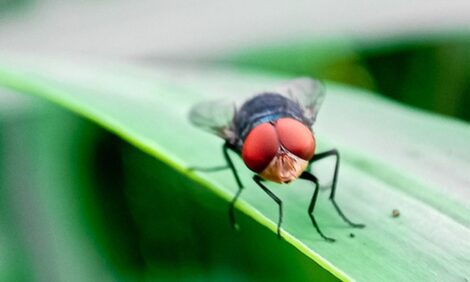



Loss of Food Testing Fund Could Threaten UK Food Safety
ANALYSIS - Removing funding for non-statutory food testing of imported food as part of government cut backs is leading to UK food safety concerns.At present about 50 per cent of the food consumed in the UK is imported into the country.
But because of government cutbacks, tests for veterinary residues have been gradually reduced in recent years.
In 2009, 1,342 samples were taken from imported meat and food products as they entered the UK and a total of 5,032 analytical tests were carried out.
These tests revealed six samples that did not comply with the veterinary residue regulations.
The following year the number of samples taken fell to 1,180 with 4,498 tests carried out and nine samples found to be non-compliant.
Last year the number of samples taken had dropped to 600 with 1,629 tests and 10 samples found to break the regulations.
This year the number if samples taken so far is 500 with 1,210 tests carried out and two of the samples with illegal residues.
The most common breaches of the code are found in farmed fish and crustaceans from China and South East Asia with substances such as malachite green, nitrofurans, tetracyclines and sulphonamides detected.
At present the UK imports around 54,000 consignments of products of animal origin and safeguard measures are carried out on around 300 samples and routine checks on another 500 samples, as well as checks carried out on all the paperwork accompanying an imported consignment.
“It’s going to be a conundrum at the ports,” Jon Averns the Port Health and Public Protection Director for the City of London Corporation told the recent open meeting of the Veterinary Residues Committee.
“We have relied on the checks at the port and we are not going to be able to go to the levels we want to when the non-statutory surveillance scheme ends.
“We are not going to be able to carry out the checks in the way we were.”
Tim Brigstocke from the Veterinary Residues Committee said that the committee believes that the surveillance of imported foods for residues of medicines used in countries outside the EU must be maintained and coordination improved to in crease intelligence.
He said that this view has been spelt out strongly to the government.
He said the Veterinary Residues Committee is working closely with the Food Standards Agency to ensue surveillance is maintained but he called on the retailers to share their testing results with the committee to be able to build a strong data base.
“We remain particularly interested to see the surveillance testing results carried out by the major retailers and food manufacturers on imported foods,” said mr Brigstocke.
But he added: “Attempts to access this data, even anonymously, have not yielded any results.
“It’s a cause of some concern.”
Following the withdrawal of funds at the end of the year checks are expected to be carried out under the Veterinary Checks Directive with a reduced number of samples.
The surveillance will use a risk based approach with a matrix ranking to bring the residues of greatest concern to the front of the test list.
The Food Standards Agency work on emerging risks will also be used to help in the surveillance programme.



